Notorious Yatala prisoner Michael Barry Fyfe released from solitary after 28 years
A notorious Yatala prisoner with a shocking history of murder and violence has been released from solitary confinement after a staggering 28 years.
Police & Courts
Don't miss out on the headlines from Police & Courts. Followed categories will be added to My News.
One of the state’s most violent prisoners has finally been released from solitary confinement at Yatala Labor Prison – after 28 years.
Michael Barry Fyfe, dubbed the Birdman of Yatala after he was once allowed to keep a rainbow lorikeet as a therapy pet, has the dubious record of being the prisoner who has served the most time in isolation in Australia.
Fyfe, 61, who is serving a non-parole period of 45 years for offences including murder, was on Tuesday morning transferred to Port Augusta Prison as part of his rehabilitation regime.
After almost three decades of near total isolation from other prisoners in Yatala’s G Division, he is now allowed to mix with the general population under the watchful eyes of prison guards.
A close friend of Fyfe’s said he was both “elated and amazed’’ at finally being released from G Division after so many years and four failed Supreme Court attempts to force authorities to do so.
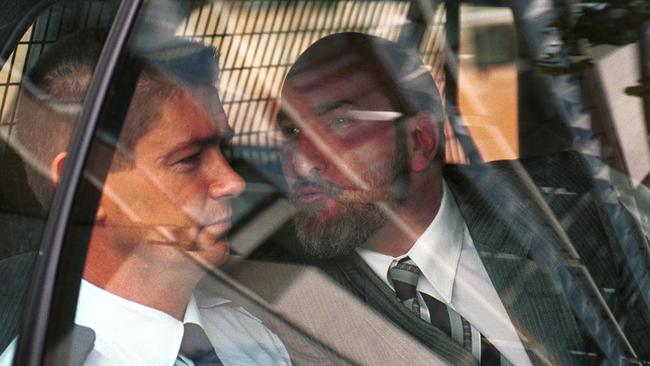
“He is just relieved and actually couldn’t believe how long it took to drive from Yatala to Port Augusta, how far it was,’’ the friend, who asked not to identified, said.

“When he was transferred he had so much adrenalin going through him he said he probably wouldn’t sleep for the next two days.
“He has been treated so inhumanely since he was put in there. At one stage he ended up in Lyell McEwin Hospital in a coma with pneumonia because it was so cold in there in winter.’’
Fyfe, who had been locked in his prison cell for 22 hours a day since January 16 1995, has a shocking history of violent offending spanning four decades that includes several targeted attacks on convicted rapists.
His antecedence includes multiple convictions for assault, assaulting police, causing death by dangerous driving and attempted murder. In 1993 Fyfe was convicted of causing grevious bodily harm after attacking a fellow inmate at Port Lincoln prison with a cricket bat and the following year he was again convicted of attempting to murder another prisoner at Yatala, on this occasion with a pick and a claw hammer.
Fyfe had been held in G Division since he murdered convicted rapist Anthony Trevor Tilley in January 1995 in the kitchen at Yatala in a cold-blooded attack from behind. Fyfe stabbed Tilley in the lower back with a large carving knife, lacerating his right kidney and dissecting his liver by twisting the blade several times. Such was the ferocity of the attack, when ambulance officers were treating Tilley a piece of his liver fell from the gaping stab wound onto the kitchen floor.
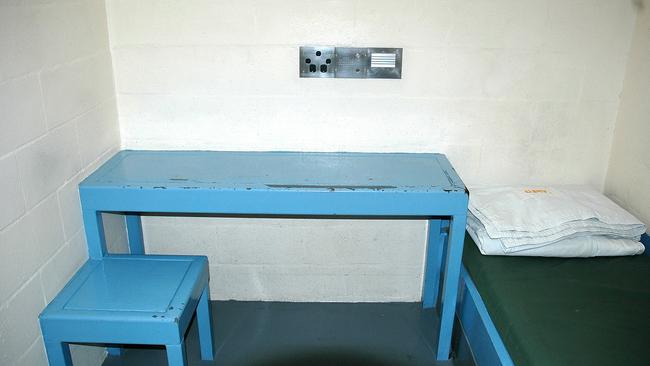
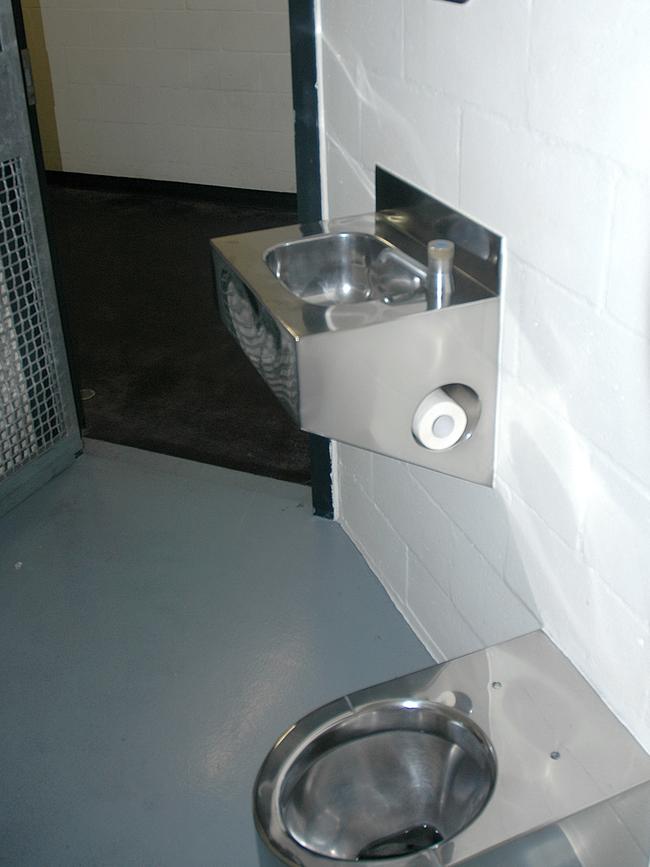
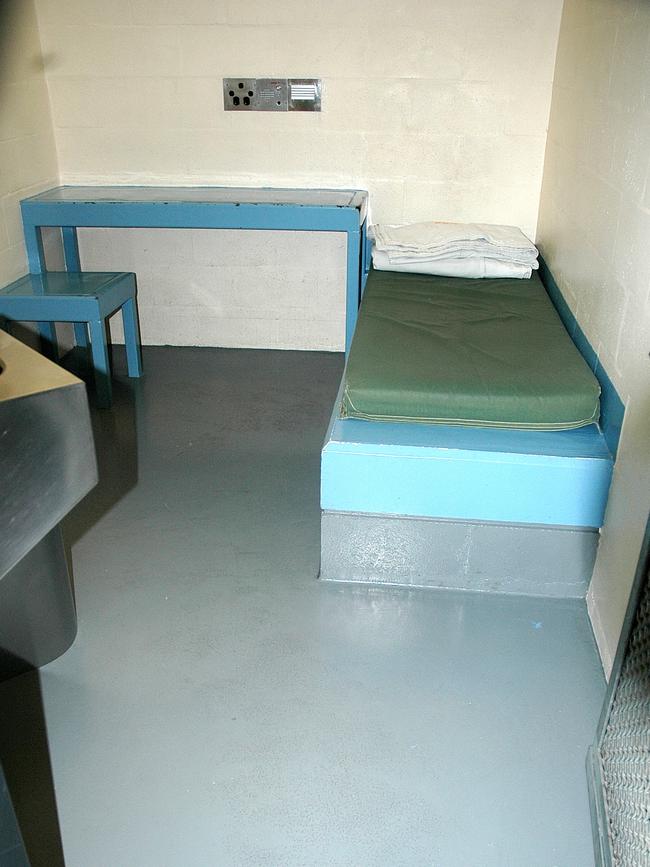
Tilley, 47, who was a serving police officer when he raped an Aboriginal woman at Port Augusta, was intensely disliked by other prisoners because of his former occupation and his demeanour in prison.
In sentencing Fyfe in 1996 for Tilley’s murder Supreme Court Justice Rod Matheson said his record of offences of violence was “one of the worst I have ever seen.’’
“It is abundantly clear that prospects for your rehabilitation virtually do not exist. You are a very bad candidate indeed for parole,’’ he said before extending his non-parole period by 28 years.
Fyfe’s close friend said despite the violent nature of his crimes, she found him to be a “well-spoken and polite man’’ who was a product of his horrific childhood.
As a child he and his sister were jointly physically and sexually abused for years by their violently depraved father and then abandoned by his mother when he was 13 years old. Placed in boys’ homes, he was again physically and sexually abused and repeatedly escaped and returned to the homes.
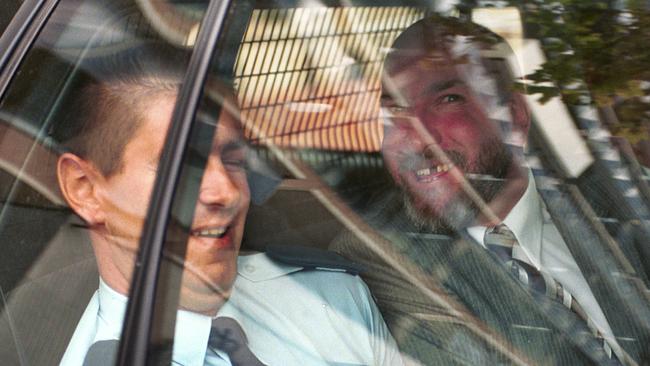
She said because of this he developed a “hatred towards authority figures who abused their roles and those who perpetrated sexual offences.’’
“This guy has been dealt the most unfortunate cards throughout his life. He has tremendous amounts of trauma he has suffered. It’s not like he just got up and felt like killing someone today, he had a horrendous life’’ she said.
While in prison Fyfe, who has no family, had been studying and educating himself, including completing creative writing courses to document his experiences of being held in confinement.
“He is so mentally strong, the things he has told me that go on inside,’’ she said.
“There is no human contact at all, they talk to one another through the walls. He spent his days writing and watching television and was getting one phone call a day.
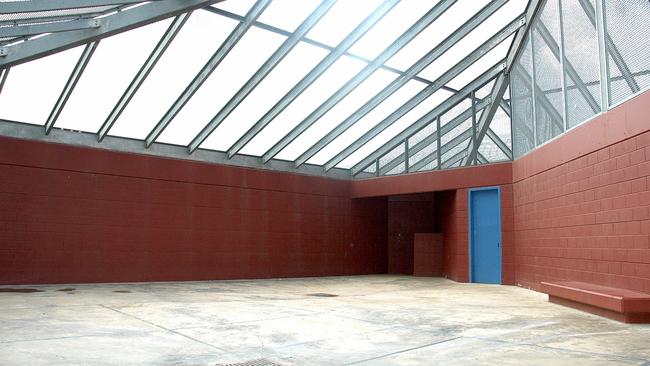
“And over the years prison officers who didn’t like him played mind games with him like not giving him his dessert to torment him and taking his clothes, little things like that.’’
Fyfe had his first taste of G Division, which holds around two dozen inmates in single cells that are predominantly concrete and stainless steel, seven months before he murdered Tilley – bizarrely at his own request.
In May 1994, after being charged with the claw hammer attack of fellow prisoner Garry Frederick Sutton – who was serving a sentence for raping 12 women in 13 years – Fyfe himself requested he be placed in G Division because he felt he was “unstable and untrustworthy’’ to mix with other prisoners.
“… I find myself unreliable to prevent a further situation in the future,’’ Fyfe wrote in a letter requesting his isolation to then Yatala general manager Kevin Corcoran.
However, shortly after writing the letter Fyfe changed his mind and requested transfer back to mainstream and he was placed back in B Division in December that year – a month before he murdered Tilley.
Over the ensuing years after being convicted of Tilley’s murder Fyfe made repeated attempts to be released from G Division that included multiple appeals to the Supreme Court in 1998, 2000, 2004 and 2007 that all failed.
On each occasion arguments presented by Fyfe’s lawyers concerning his human rights were outweighed by evidence from psychiatrists concerning his violent disposition that indicated he would always be a high risk and should remain isolated from other prisoners.
Preparations for Fyfe’s transfer started around six months ago when Yatala managers started allowing other inmates – who volunteered – to spend time with him during his hour-long exercise period in G-Division’s enclosed, cage-like yard, to assist his resocialisation.
“He’s been able to talk to other prisoners who have moved through G Division for punishment over the years and has several close friends inside who have helped him get through, but it’s also been talking to us, his few friends outside, that has helped him enormously,’’ the friend said.
“He can count his friends and those he trusts on both hands, that’s it.’’


